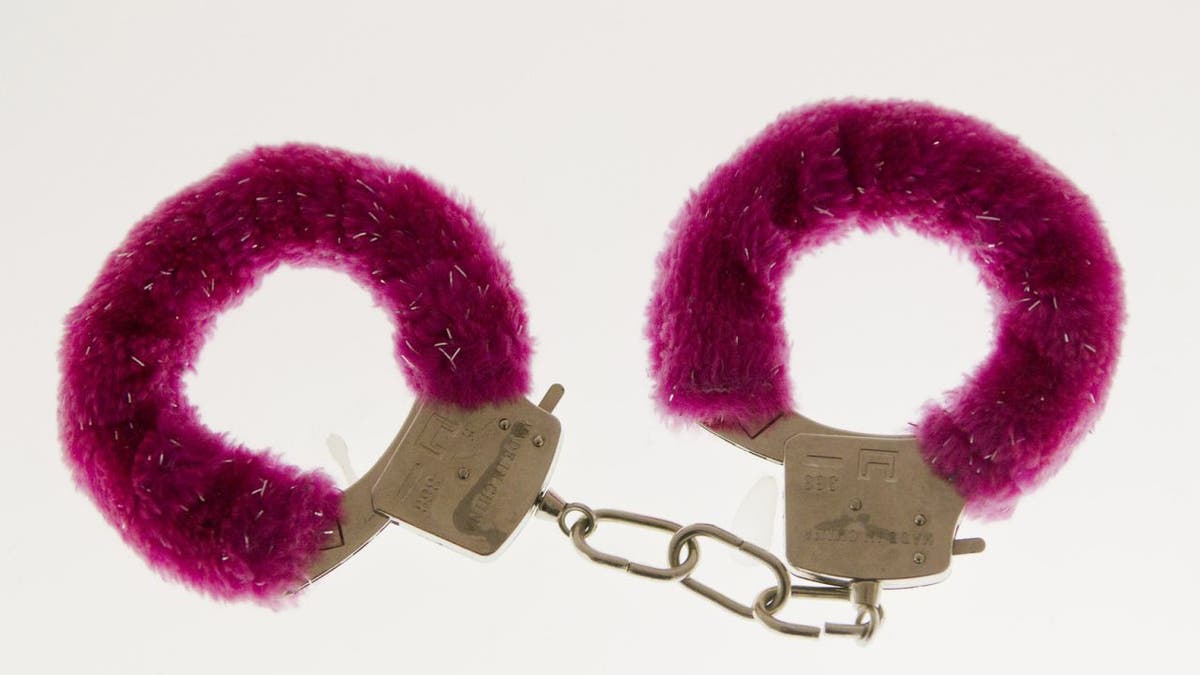
A pair of fuzzy handcuffs displayed at the original Museum of Broken Relationships in Zagreb, Croatia tossed aside by a former lover. (AP)
It’s a place that pays tribute to doomed romances and busted-up couplings, and it’s just found an appropriate new home in the City of Broken Dreams.
A second branch of the Museum of Broken Relationships has just opened up in Hollywood, Los Angeles, packed with 115 mementos and other artefacts of real-life failed relationships and love affairs, as well as the sordid details of what went wrong.
And there’s even a special place for you to sit and contemplate your own broken heart.
Checked out the Museum of Broken Relationships. Worth the ungodly trip to Hollywood Blvd. pic.twitter.com/zoyOkHibyM
— Arden Rose (@ardenrose186) June 6, 2016
The Museum of Broken Romances first opened in Zagreb, Croatia 10 years ago as a “chance to overcome an emotional collapse”, according to its website.
“Be it sheer exhibitionism, therapeutic relief, or simple curiosity — people embraced the idea of exhibiting their love legacy as a sort of a ritual, a solemn ceremony”, the museum said, adding its exhibits aim to “inspire our personal search for deeper insights and strengthen our belief in something more meaningful than random suffering”.
In that spirit, the museum’s second branch in L.A., which opened over the weekend, promises to take visitors on a “diverse emotional journey” through the “love, pain, drama, irony, humour and reconciliation” of breakups.
Items in the museum range from sentimental love letters, photographs, a wedding dress and jewellery, through to women’s underwear, contact lenses, a street sign and even a manual on how to care for someone who’s had an organ transplant.
The pieces were donated by the broken-hearted right across the world, from London, Paris and Helsinki to Cape Town, Buenos Aires and South Korea.
Each item in the collection is captioned in detail, including the city it’s from, the duration of the relationship behind it and how the relationship came to an end.
Donors share their relationship stories through artifacts at The Museum of Broken Hearts. https://t.co/vZ5Gt0y4jk pic.twitter.com/TerQ1X1xW0
— ForbesLife (@ForbesLife) June 8, 2016
Romantic relationships is represented by most of the items, though others signify broken families and business relationships.
The Californian outlet was brought about by L.A. lawyer John Quinn, who visited the original museum in Croatia and asked its owners for the licensing rights.
“Anyone can relate to these stories,” Quinn told the Wall Street Journal.
“Even if it’s only to think, wow, I thought I had it bad. This person had it much worse. This person got over this. I can do it too.”
